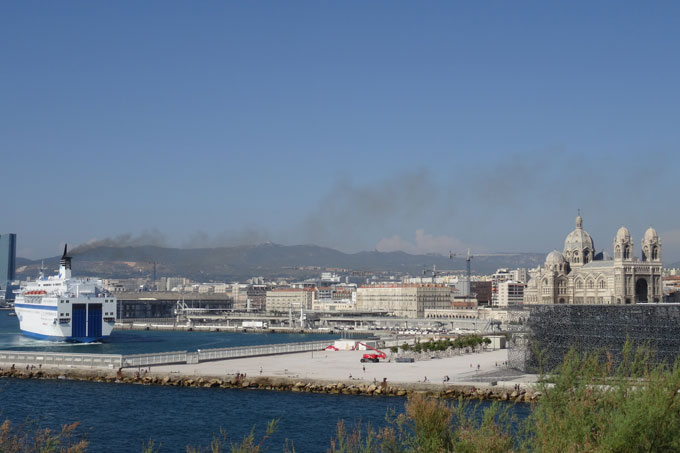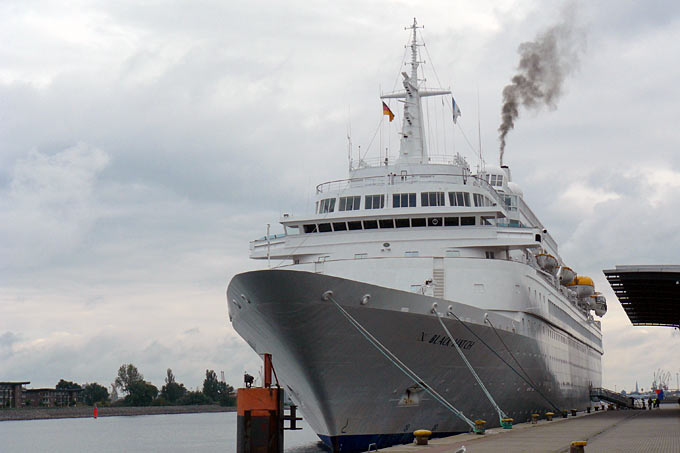2. International Mediterranean Shipping Conference
Reducing air pollution from ships in the Mediterranean Sea

Port of Marseille - Foto: Daniel Rieger
Shipping is a contributor to air pollution that has impacts on human health, the environment and the climate. For coastal areas and port cities ships are a major source of air pollution. However, in comparison to road transport, few actions have been put into place in order to effectively reduce shipping pollutants emissions.
The International Maritime Organization (IMO) adopted in October 2016 a 0.5% sulphur threshold for shipping fuel, but it will only enter into force in 2020. Nevertheless, ships will still be a major source of toxic air pollution. Hence, areas with high shipping traffic as the Mediterranean Sea are particularly affected by these harmful shipping emissions such as particulate matter, black carbon, nitrogen oxides and sulphur oxides. Thanks to the creation of Sulphur Emission Control Areas (SECA) in the North and the Baltic Sea, air quality got significantly better in this area. Therefore, effective means to reduce air pollution from ships in the Mediterranean Sea such as an ECA should be established likewise.
Together with stakeholders from the shipping industry, ports and cities we will not only reflect the shipping emissions impacts on the Mediterranean region but also identify the technical and legislative means to effectively reduce air pollution from shipping as well as corrsponding challenges. We will also address ways to ensure proper compliance and enforcement of the existing and the future regulatory framework.
The conference is organised by France Nature Environnement, the French Environment Ministry and NABU.
When: Tuesday 15th May (9:30 – 18:00)
Where: French Environment Ministry - Hôtel Roquelaure, 246 Boulevard Saint-Germain, 75007 Paris
Session #1
Session #2
Session #3
More Information
Sulphur oxide (SOx), nitrogene oxide (NOx) and (ultra) fine particle (PM) emissions from shipping are a significant threat to human health, the environment and the climate. A well established network of NGOs in Europe is working towards establishing a Mediterranean Emission Control Area (MedECA) for sulphur and nitrogen oxide emissions. more →

